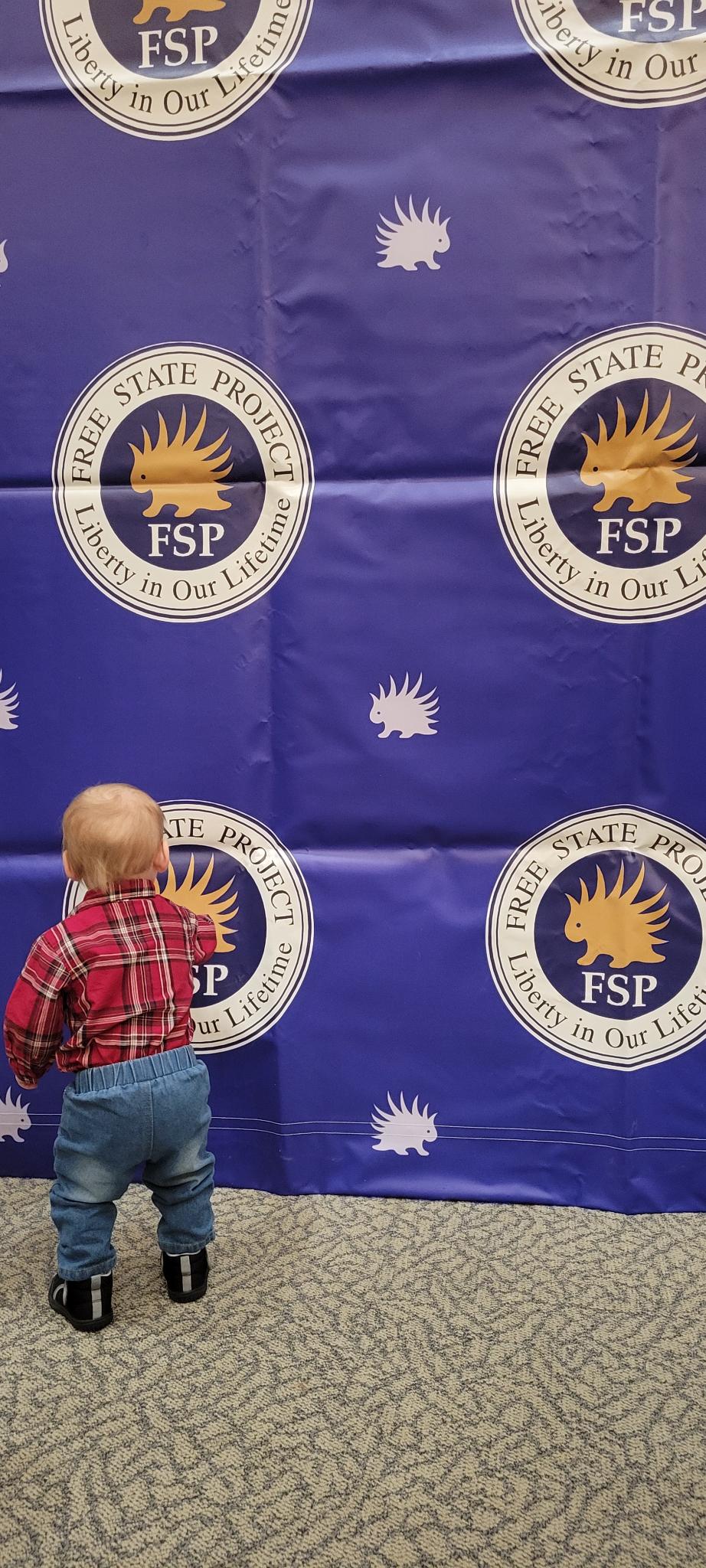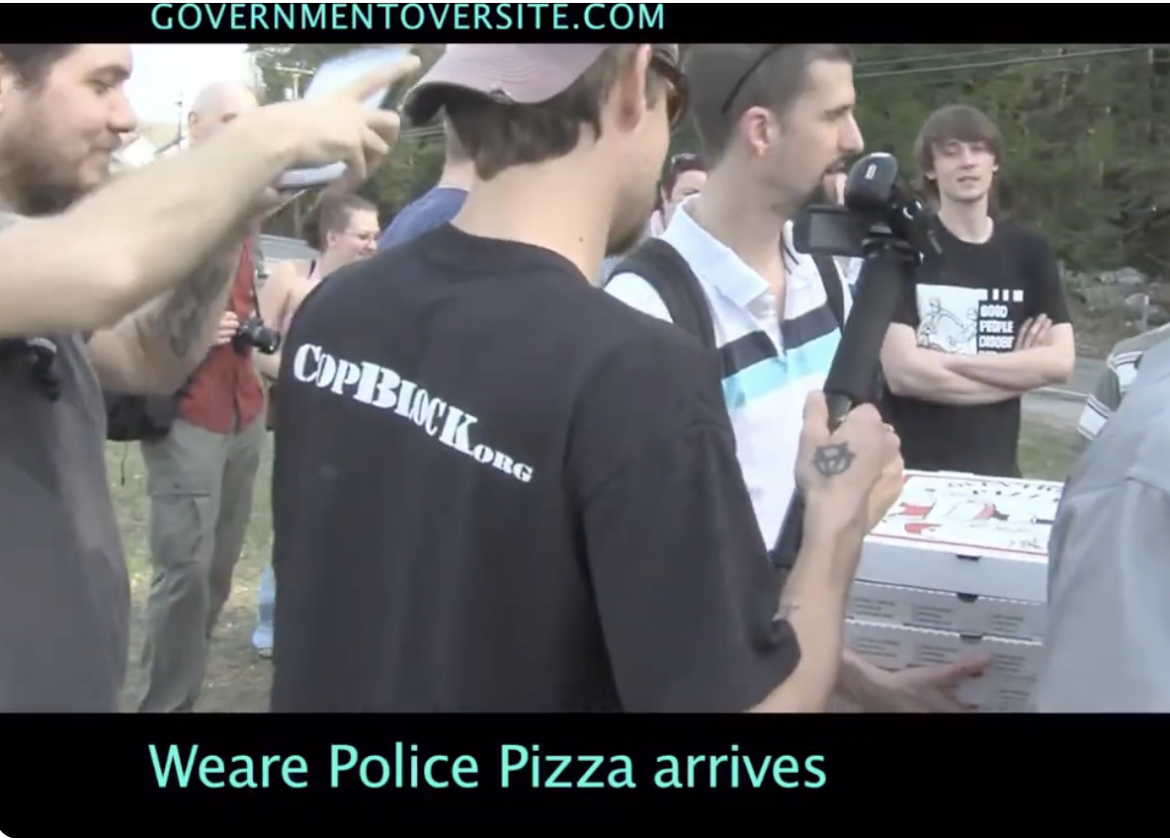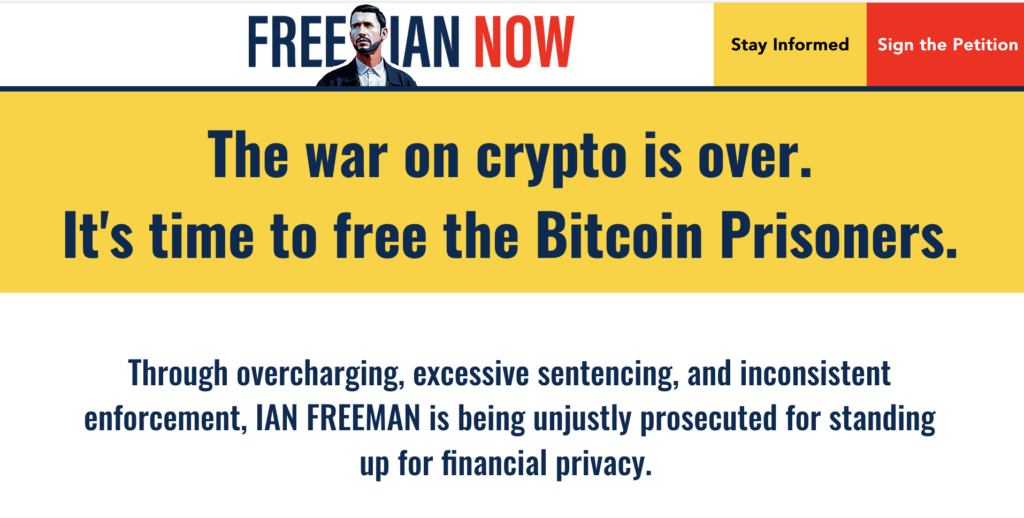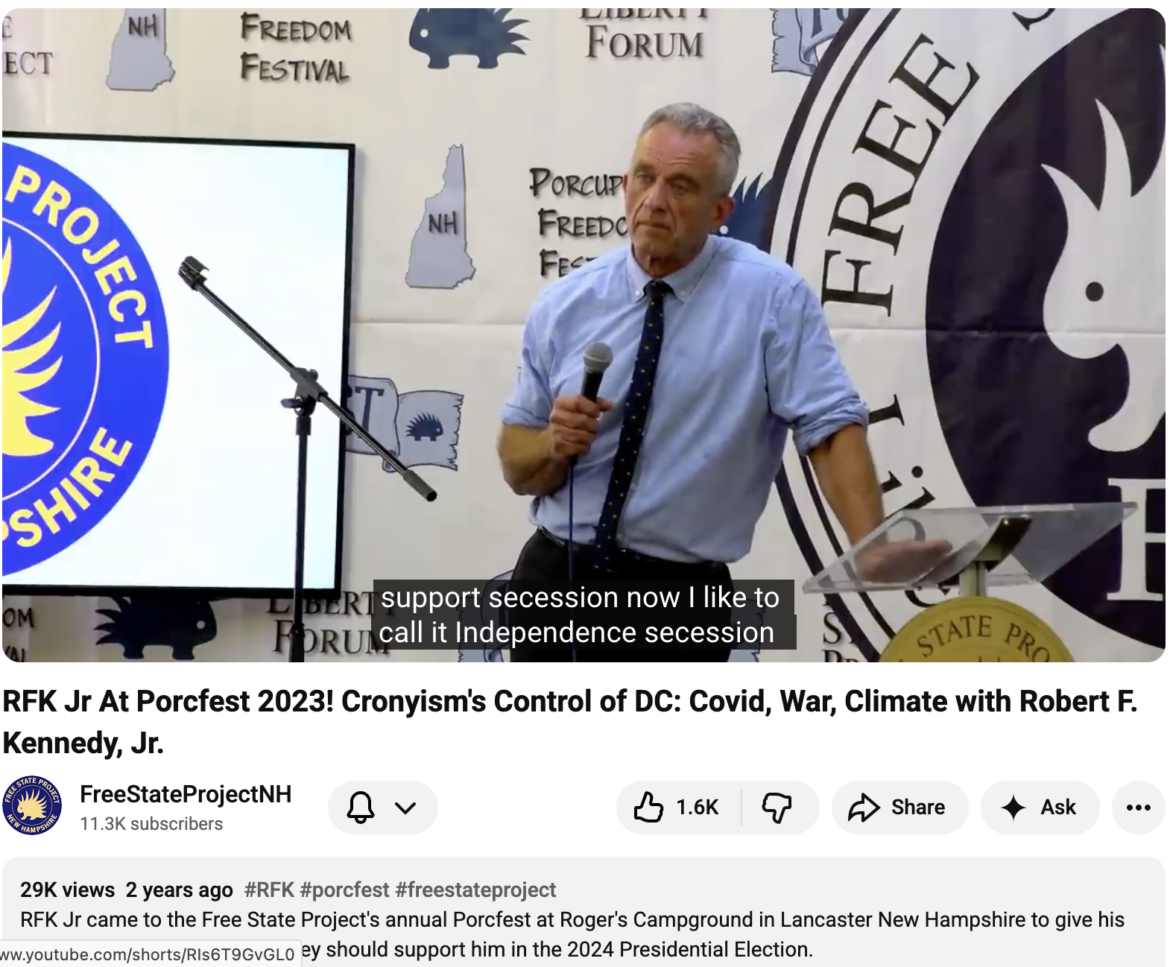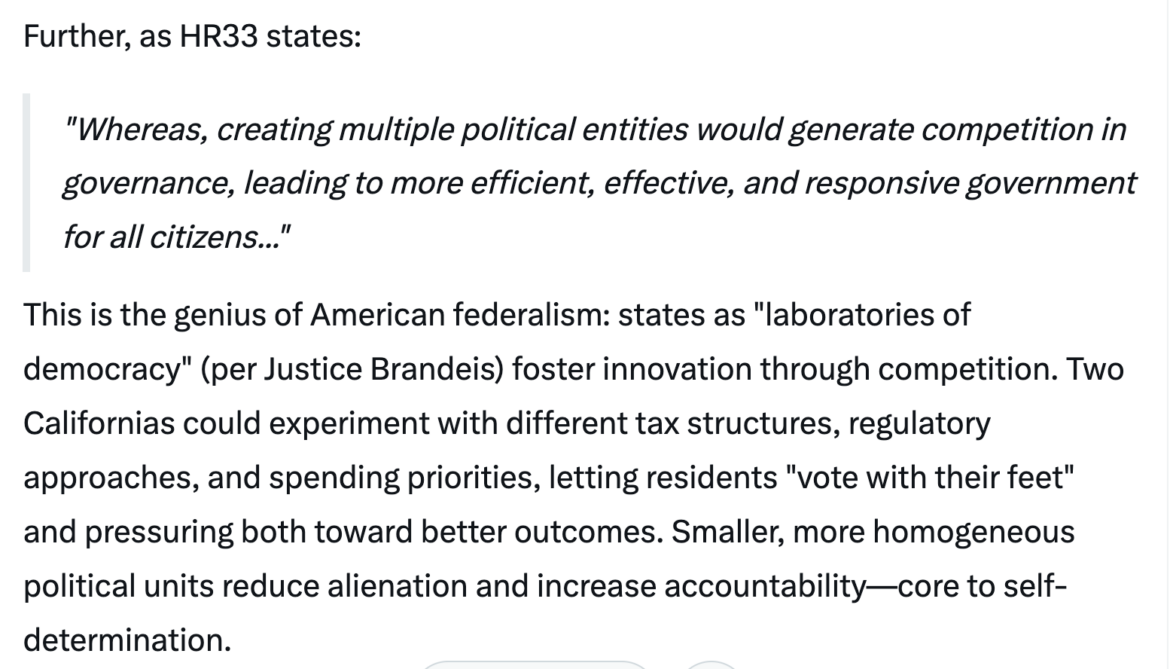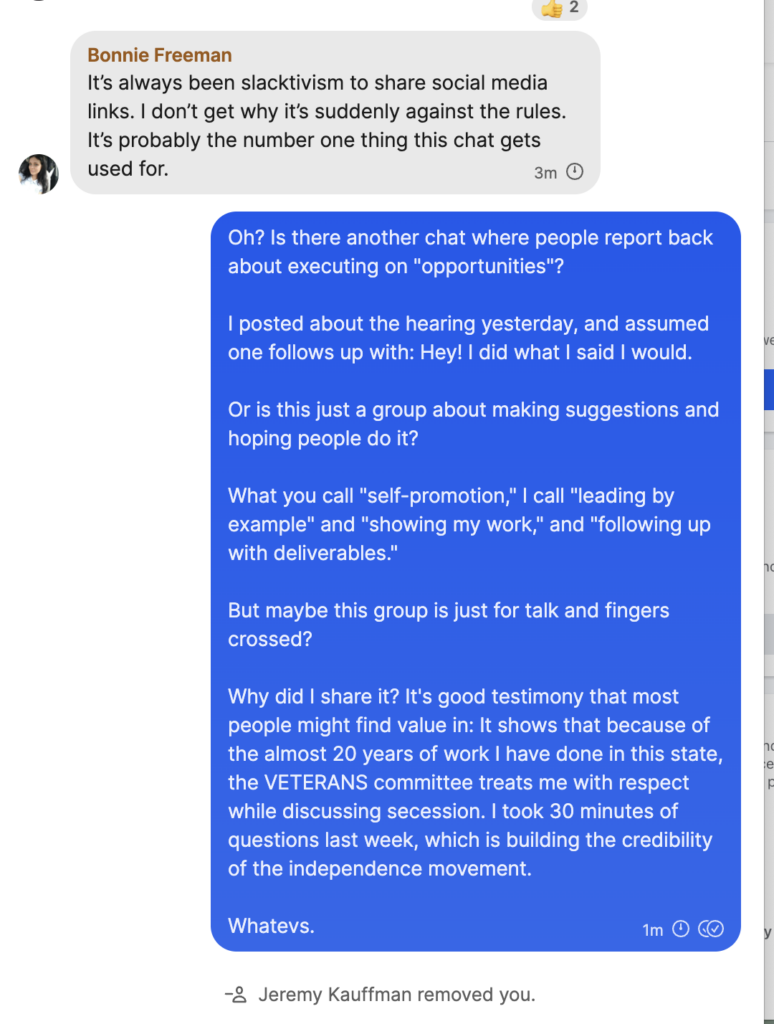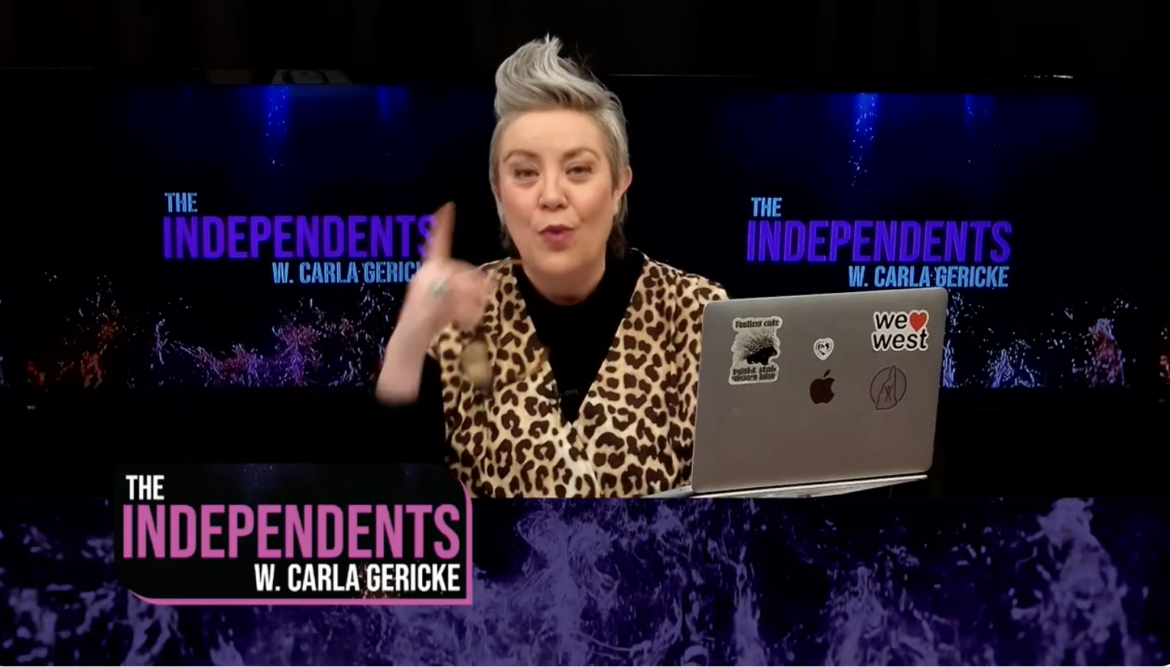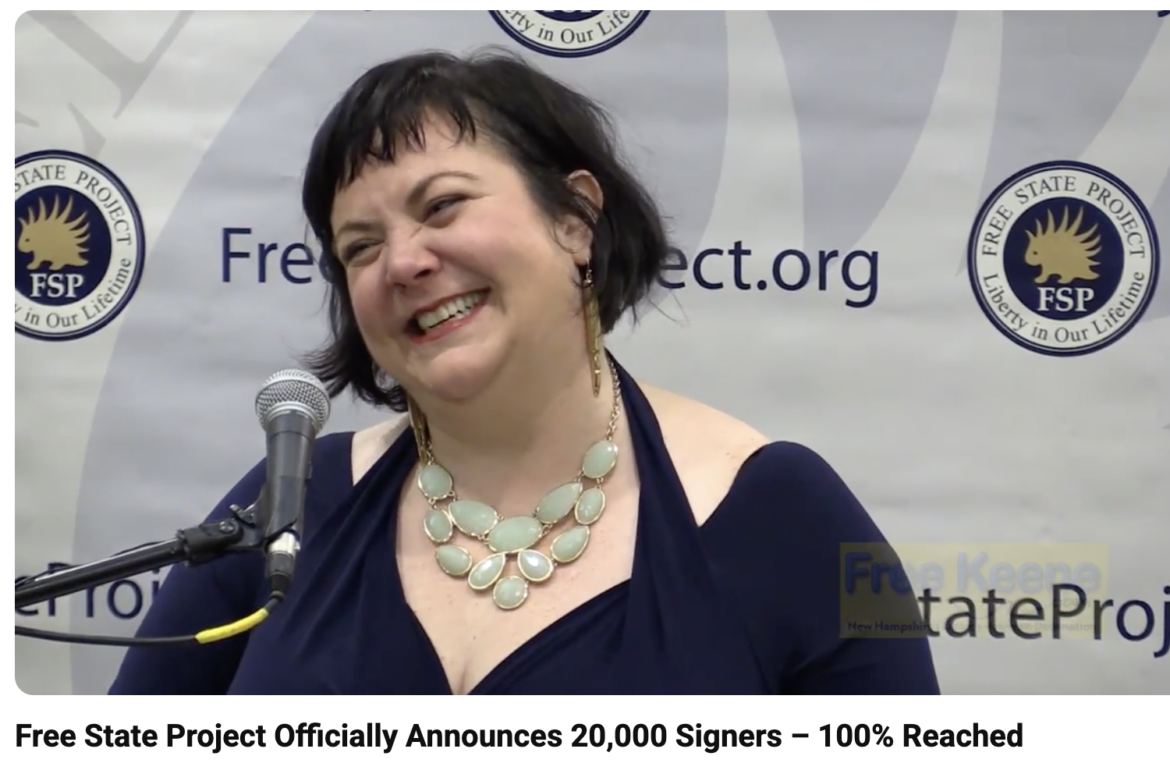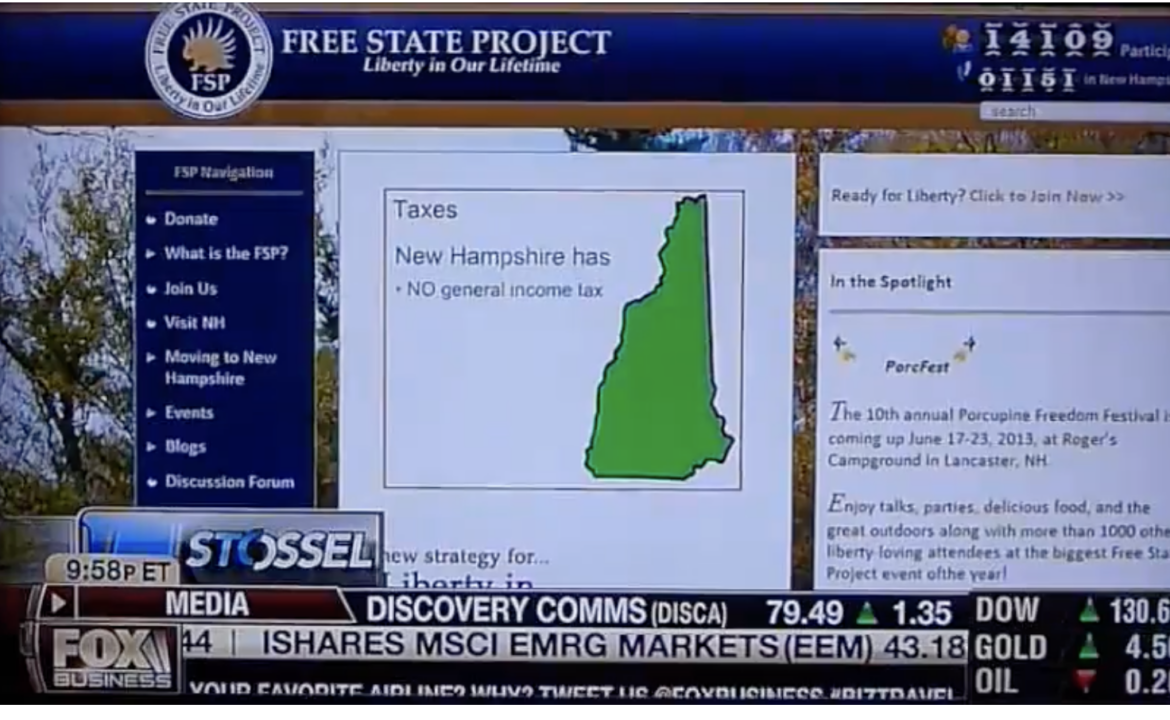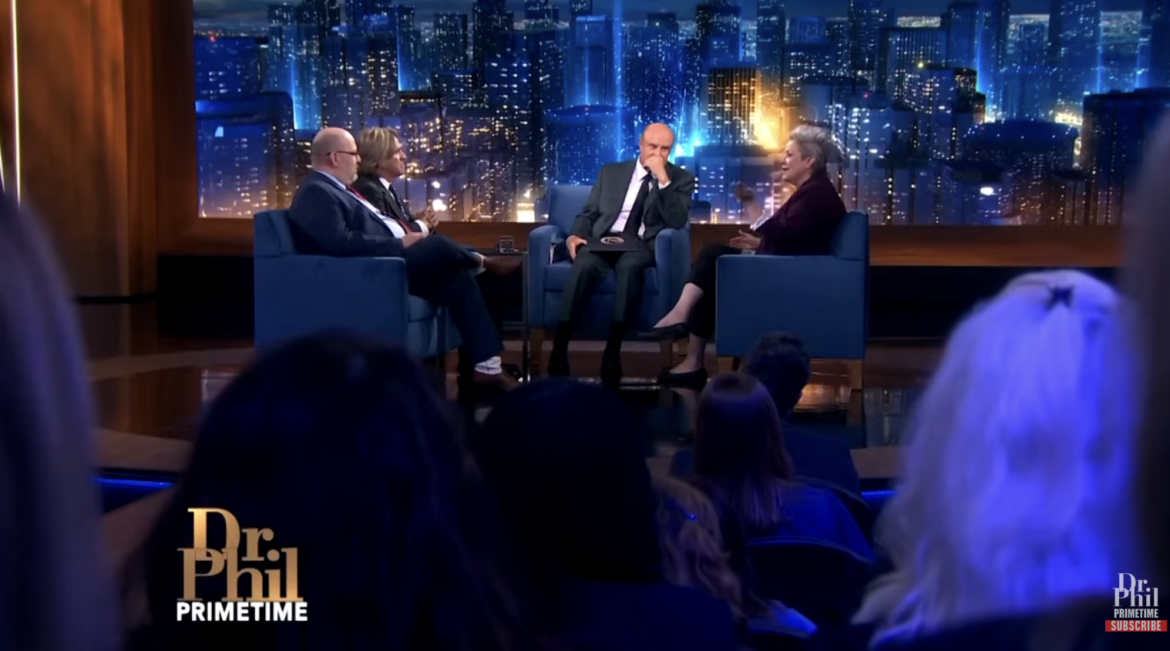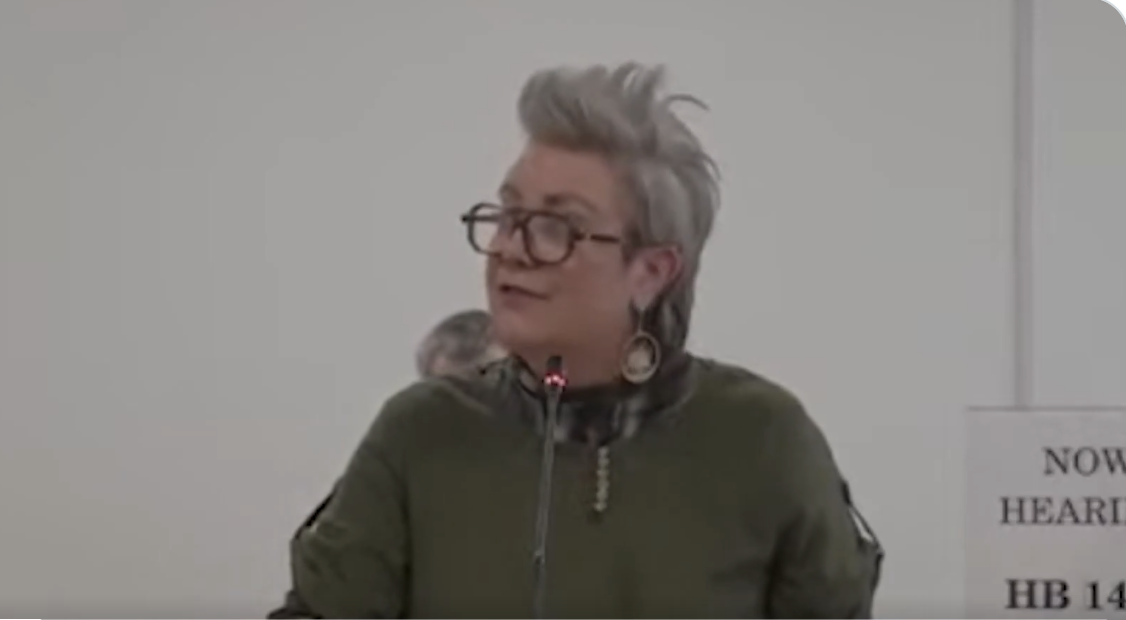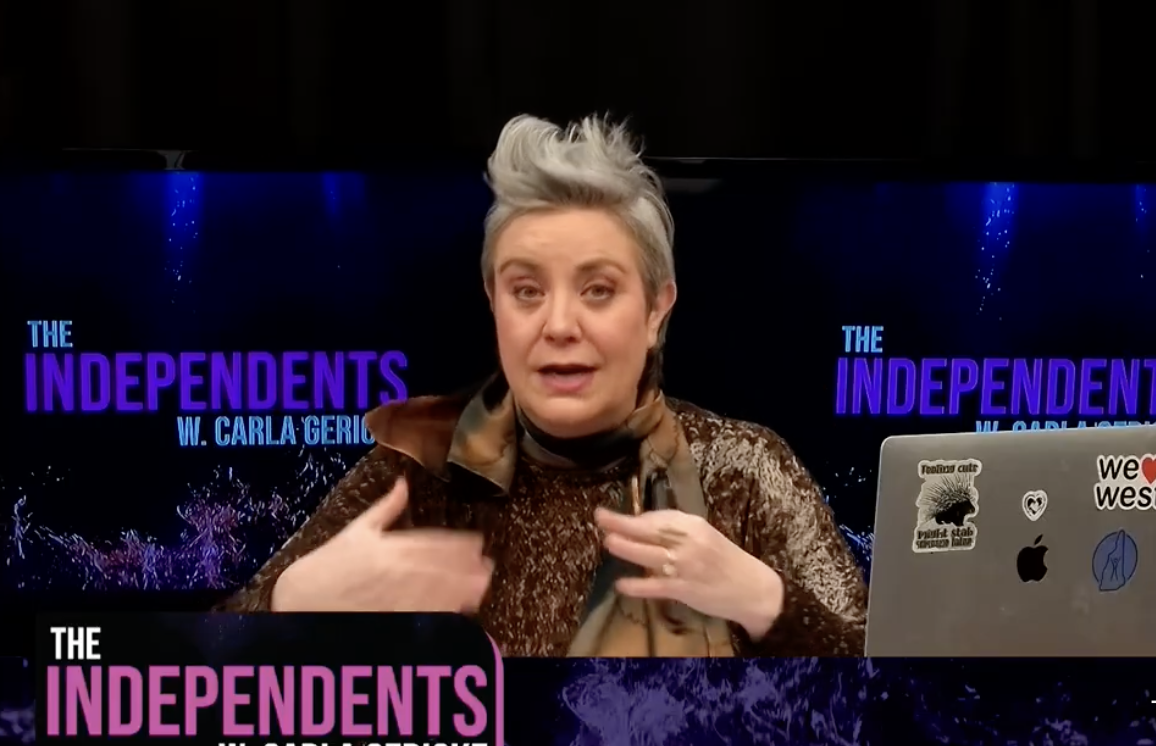Last night, we celebrated the 10th Annual Porcupine Day, when, on February 3rd 2016 at a press conference, I announced the Free State Project had Triggered the Move, thereby triggering statists forever. Watch the press conference:
I was honored to award the inaugural LIVE FREE AND THRIVE Lifetime Achievement Award to Bill and Gail Domenico. Here is my speech (better video incoming):
They were pretty floored. 🙂
10th Annual Porcupine Day – LIVE FREE AND THRIVE Lifetime Achievement Award
Good evening, my fellow Porcupines.
Happy 10th Annual Porcupine Day.
[APPLAUSE]
Ten years ago, we made history.
Ten years ago, at a press conference in downtown Manchester, we announced that the 20,000th pledge had been met—and that it was time for liberty lovers from all over the world to move home to New Hampshire.
Of course, Porcupines being Porcupines, by then somewhere between two and three thousand movers had already arrived.
These early movers—the pioneers, the trailblazers, the founding fathers and mothers of the Free State—knew this would work.
We knew the Live Free or Die spirit was worth preserving for future generations.
And we knew that fostering liberty wouldn’t just protect freedom—
it would allow people to live free and thrive.
New Hampshire has always been a refuge for the remnant—
for people who refused to bend the knee,
who said, quietly or loudly,
“No, actually. I will think for myself.”
Tonight, we honor that spirit.
Tonight, I’m thrilled to announce the inaugural Live Free and Thrive Lifetime Achievement Award.
And the first thing you should know about this award—
is that it is not a trophy.
It’s… a pine cone.
[LAUGHTER]
Because pine cones tell the whole story of what we’re building here.
There’s a phrase many of us know well:
They thought they could bury us.
They didn’t know we were seeds.
But here’s the part people forget:
Seeds don’t grow in a vacuum.
Seeds need soil.
They need time.
They need water.
They need sunlight.
Seeds need nurturing and nourishment—
for the Tree of Liberty to grow.
It started long before us.
The Pine Tree Riot, right there in Weare, New Hampshire,
when ordinary people said to a faraway king,
“These trees are ours—not yours.”
And then proved it.
From Weare to Lancaster,
from taverns to town halls,
the same truth echoes:
You reap what you sow.
A pine cone protects its seeds until conditions are right.
It’s a patient little vault—holding tight through snow and storms, through waiting and uncertainty. And only when the air turns warm and dry does the cone open. Not by force. Not by panic. But naturally.
The scales loosen.
The seeds slip free.
The wind carries them outward—toward their own chance at life.
A pine cone doesn’t release its future too early.
It releases it when conditions are right.
Heat.
Pressure.
Time.
And that is what tonight’s recipients represent.
For almost two decades—
they have planted seeds.
Every week.
Every Tuesday.
For years.
Not flashy.
Not loud.
Just open doors, cold drinks, warm smiles—
and the quiet magic of belonging.
For so many Free Staters,
Bill and Gail Domenico were the first faces.
The first welcome.
The first moment of thinking,
“Oh. These are my people.
Here, I could put down roots.”
And that matters more than politics.
More than legislation.
More than X wars.
Because movements don’t survive on ideas alone.
They survive—and thrive—because of people,
and how those people choose to show up.
If you plant fear, fear grows.
If you plant contempt, contempt spreads.
If you plant hate, it comes back twisted and bitter.
But if you plant love—
generosity, patience, welcome, humor—
you don’t just get individuals.
You get roots.
Those roots become trees.
Tall ones.
Stubborn ones.
Pines that survive storms.
And when enough of them stand together—
they form a forest.
With more cones.
More seeds.
A cycle.
A living system.
A forest that regenerates itself—
for generations to come.
That is the Free State Project at its best.
Unity.
Shared tables.
Shared laughter.
Shared resolve.
Bill and Gail, you didn’t just host a meetup.
You cultivated an ecosystem.
You made liberty feel human.
You made newcomers feel safe.
You made “Live Free” something people could respond to.
So tonight, on our tenth Porcupine Day,
it is my deep honor—on behalf of a grateful movement—
to give you these symbols of what you’ve contributed.
These pine cones represent what you planted.
A reminder that what we sow matters.
And proof that love, when tended patiently,
turns into forests.
Thank you for being the soil.
Thank you for being the roots.
Thank you for helping us grow tall.
Bill and Gail Domenico—
please come up and receive the
Live Free and Thrive Lifetime Achievement Award.
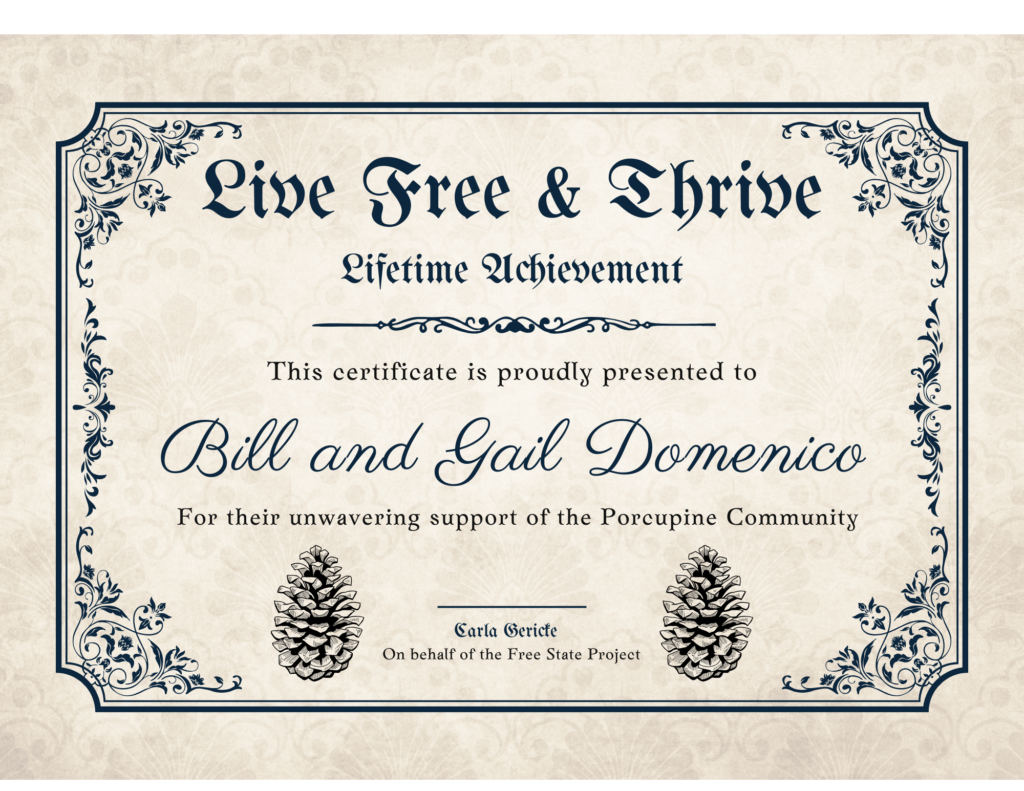
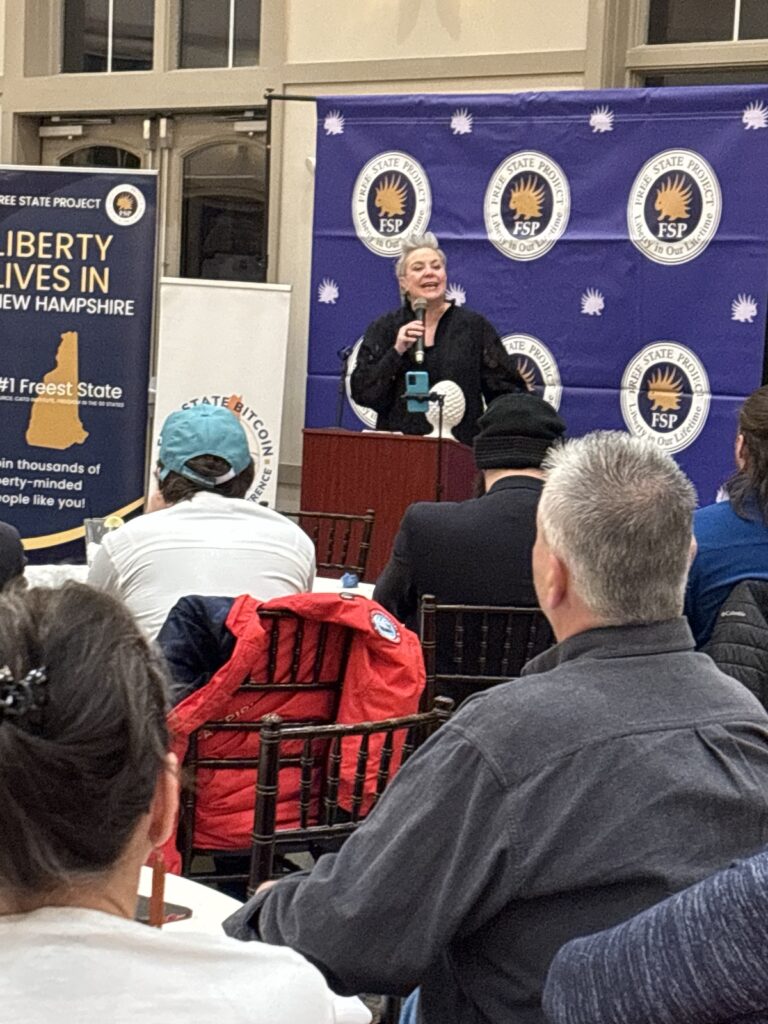
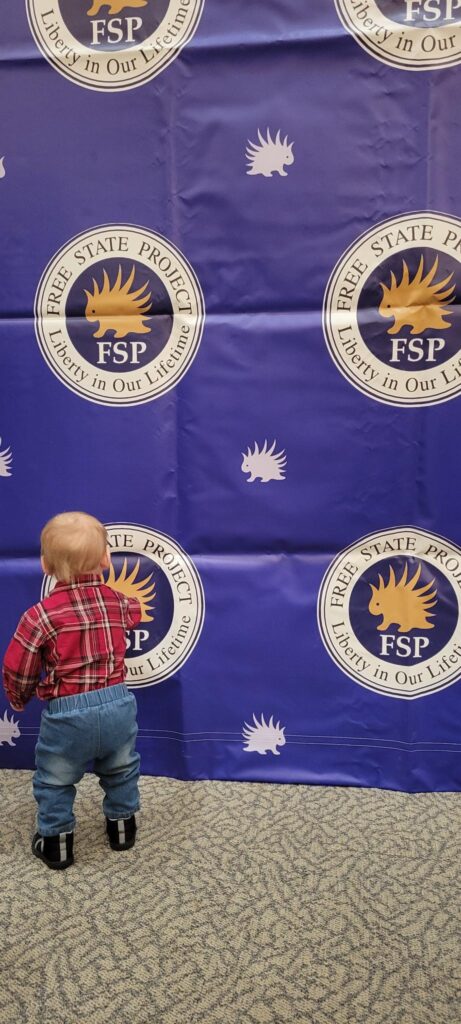
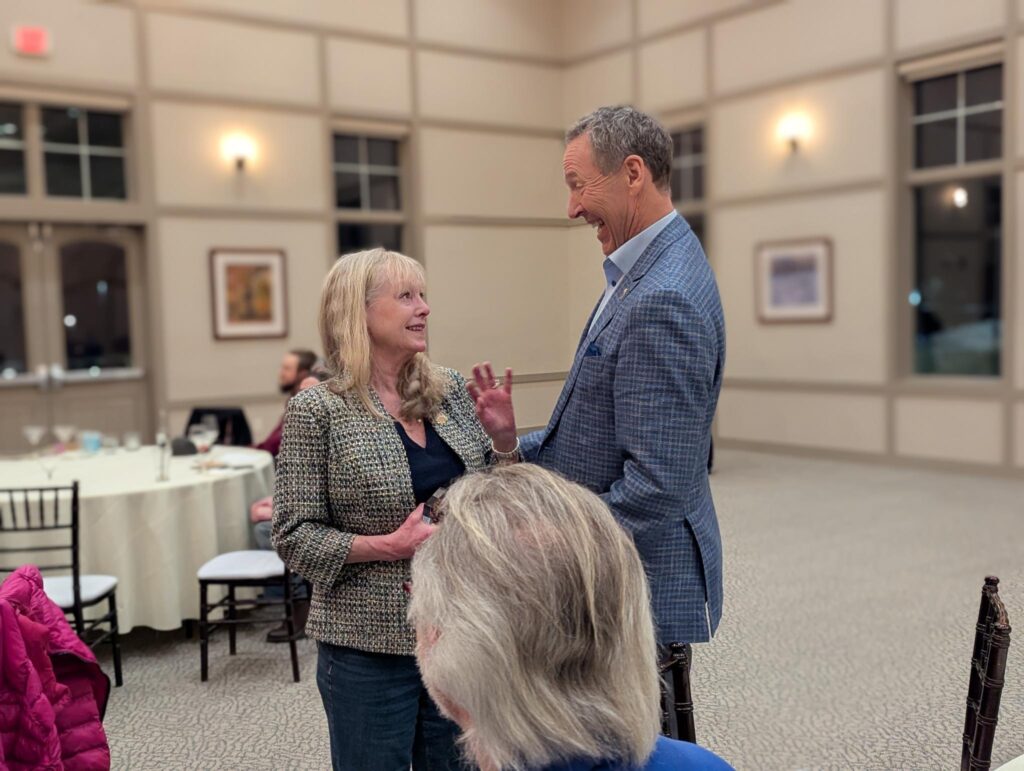
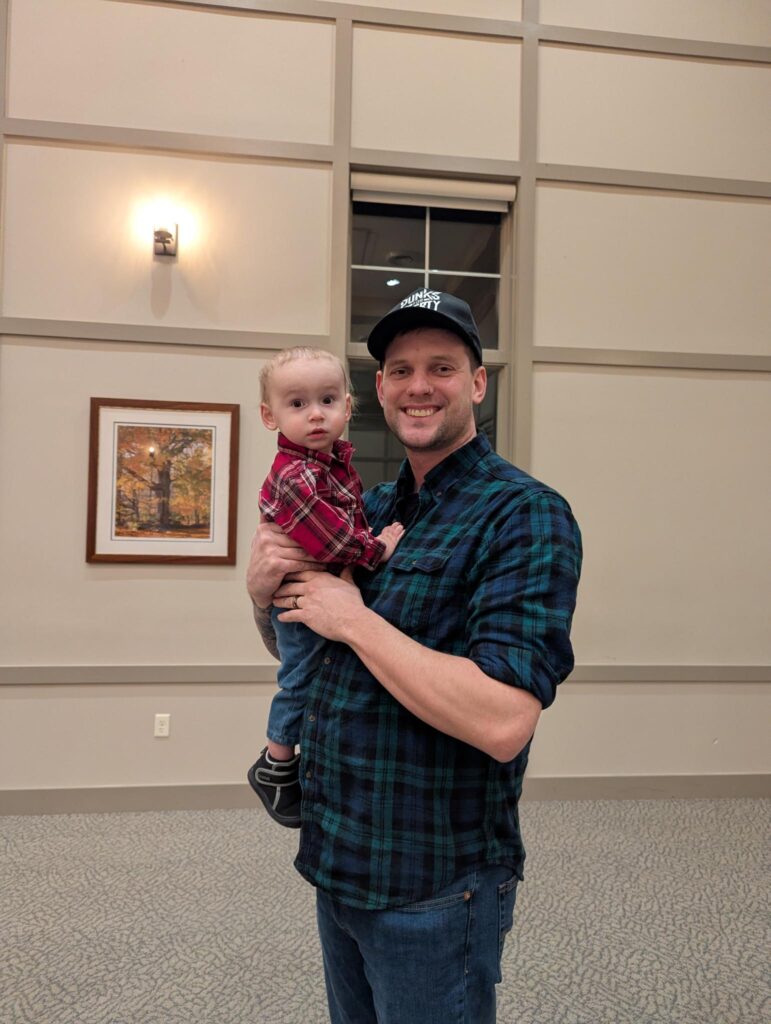
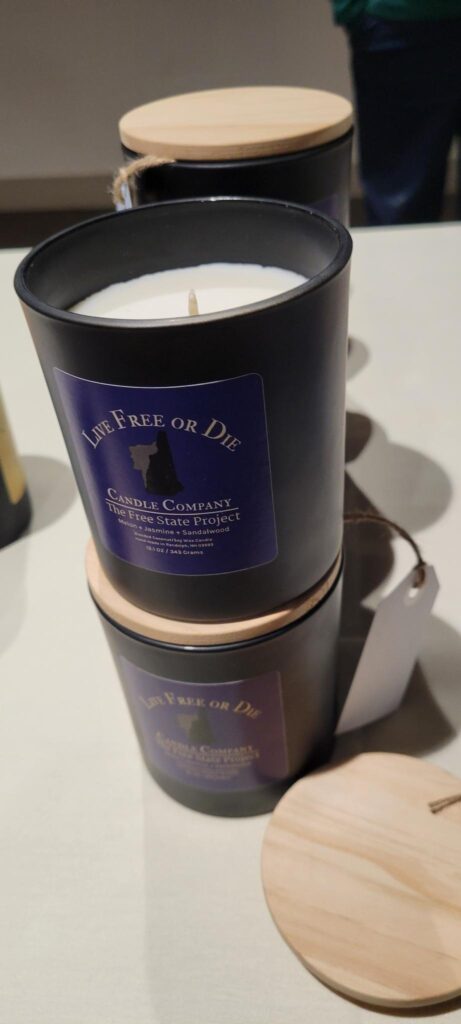
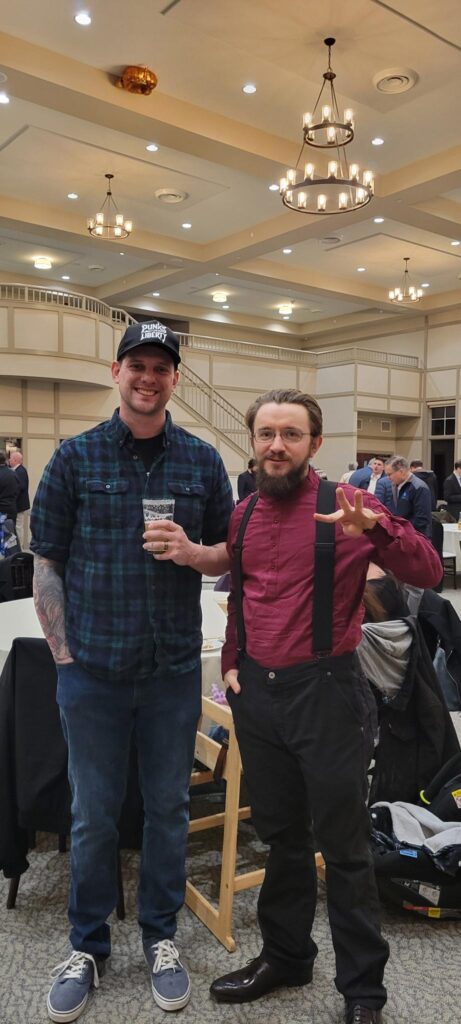
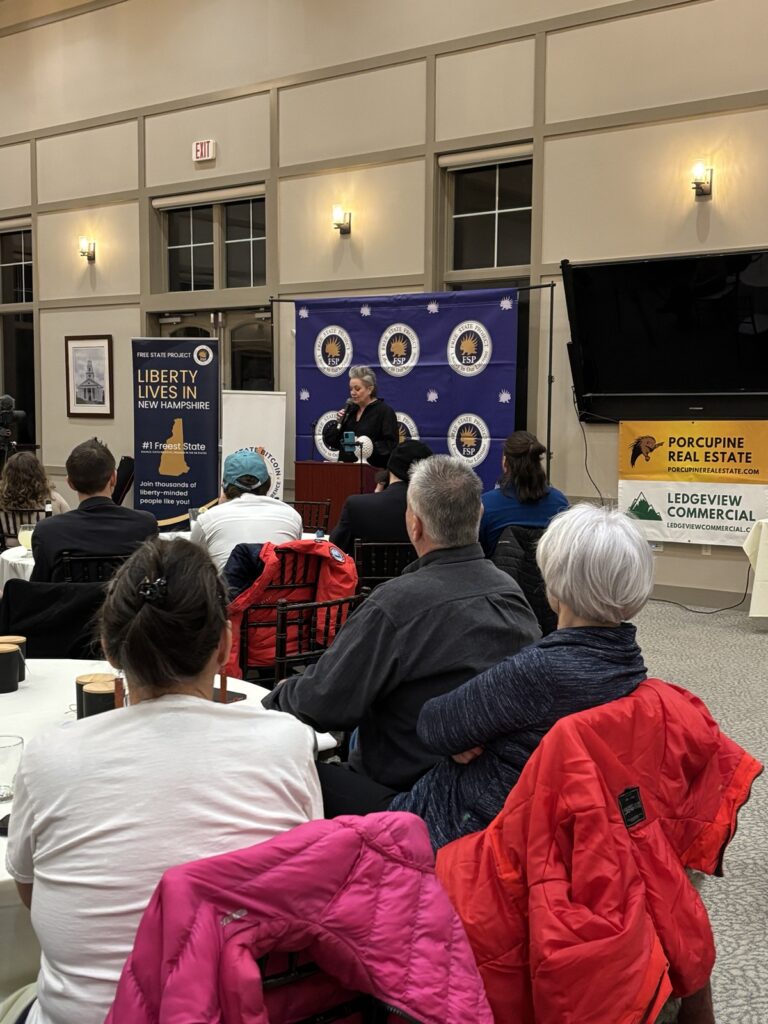
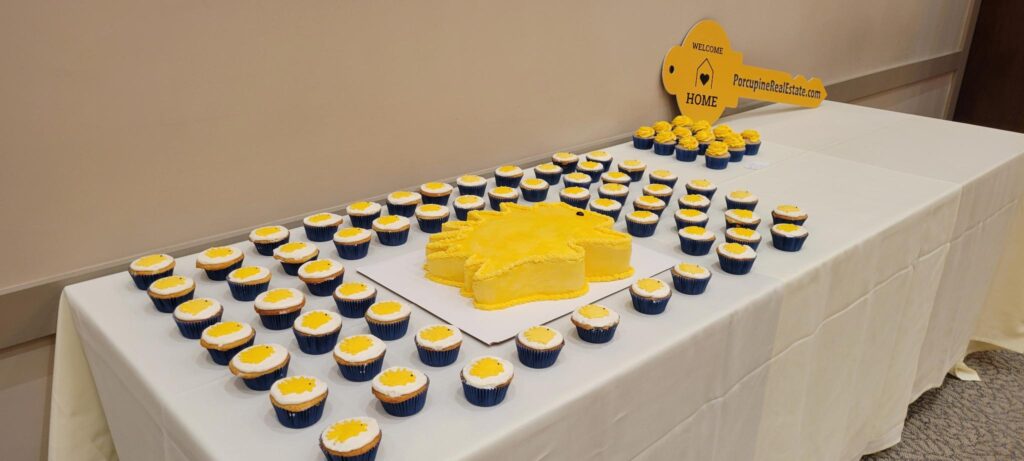
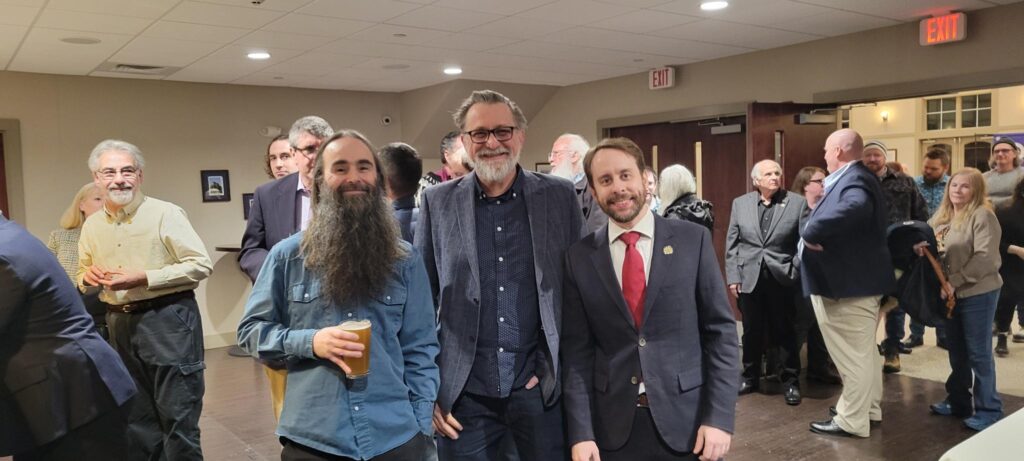
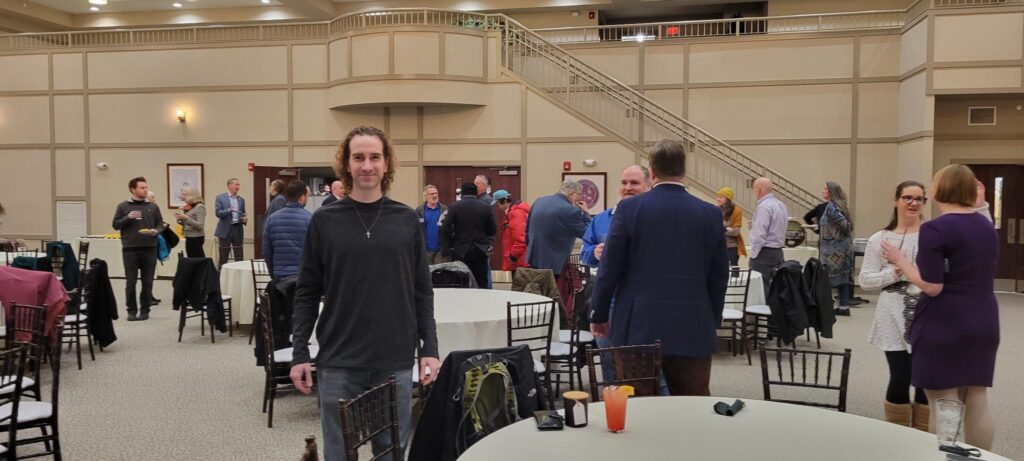
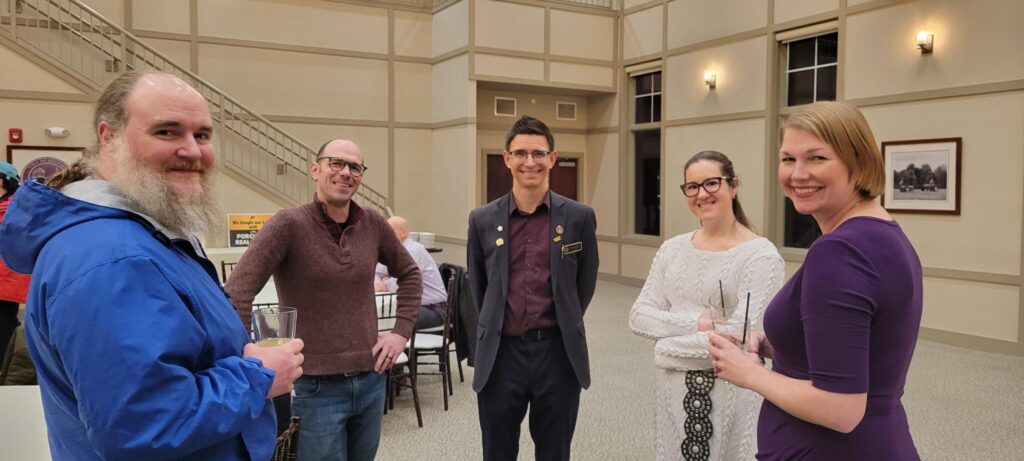
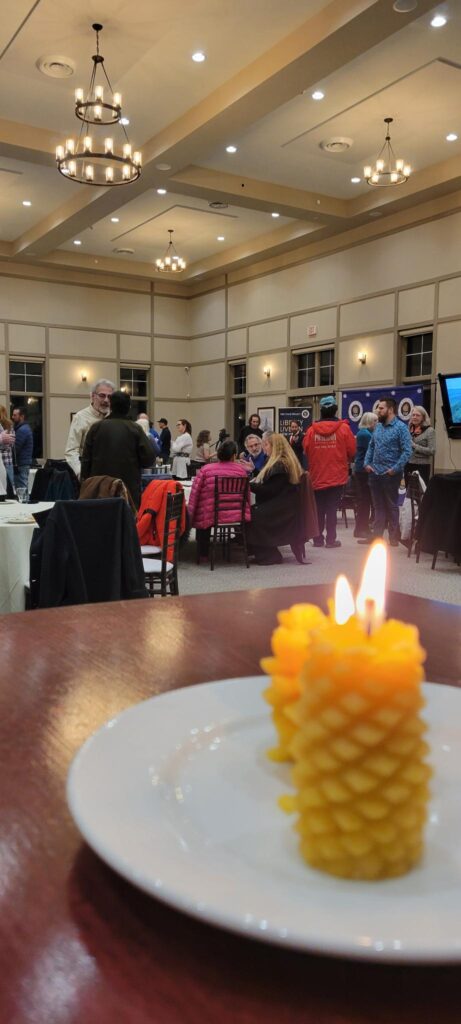
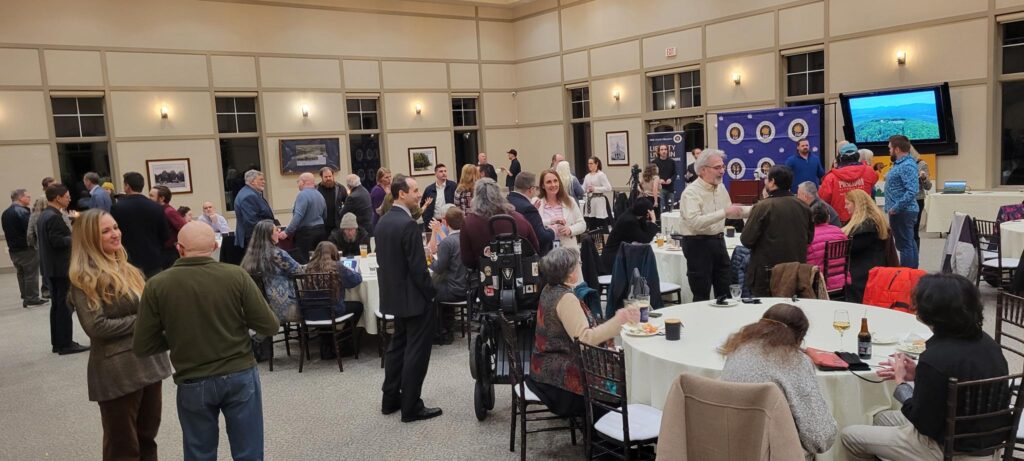
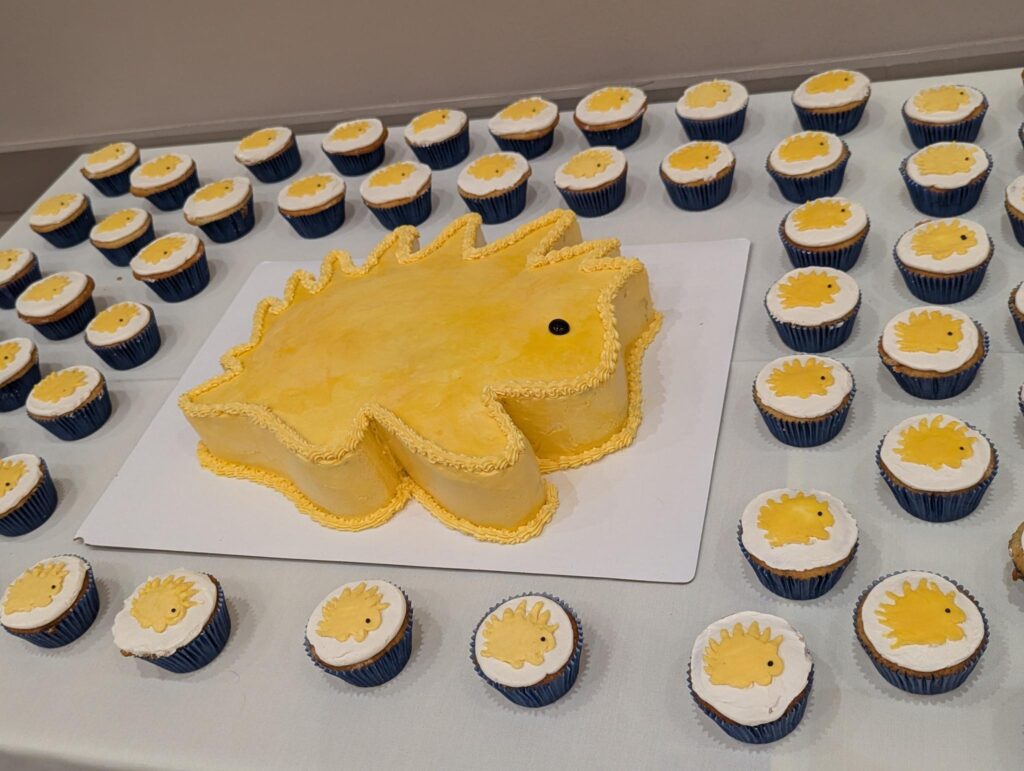
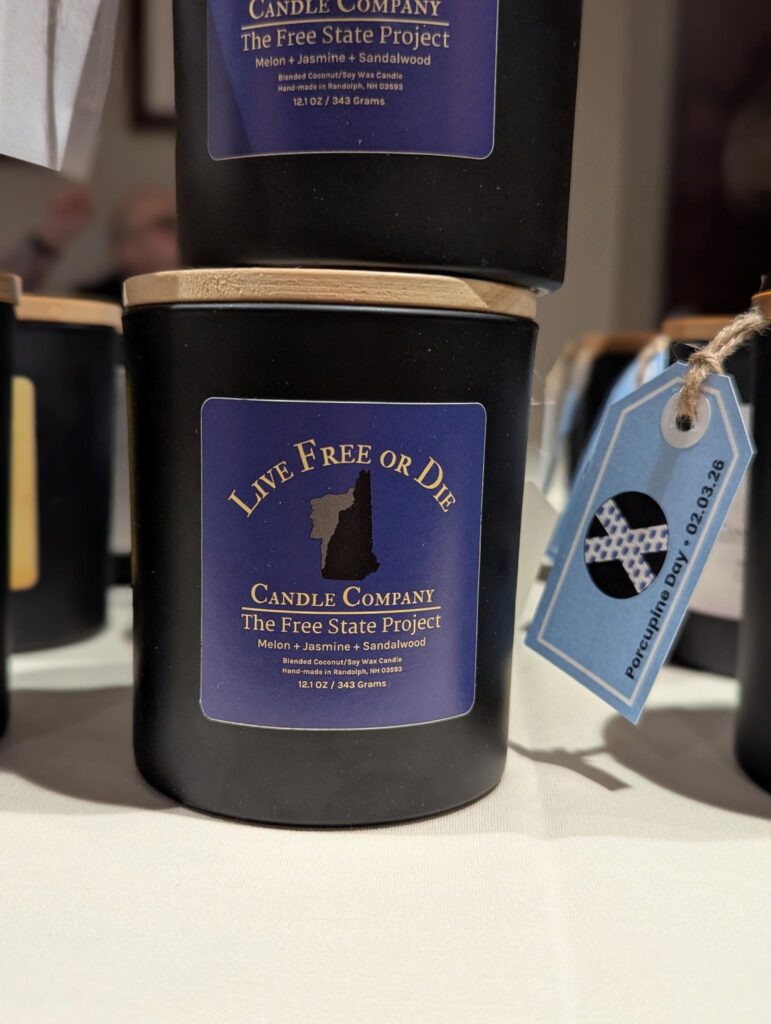
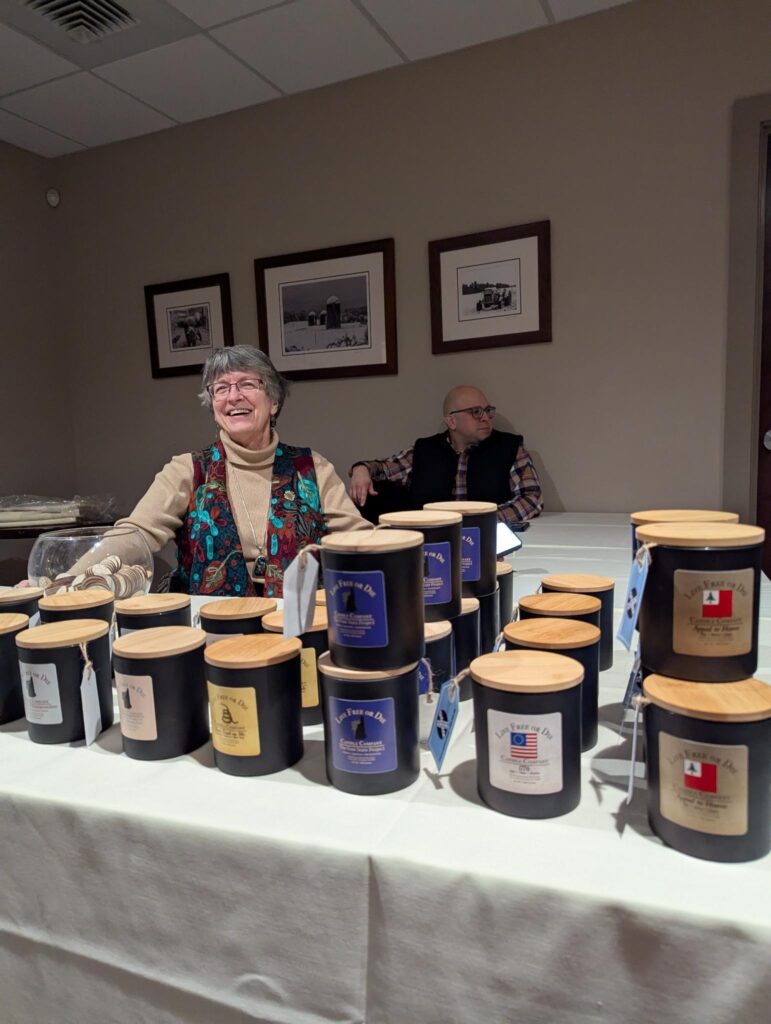
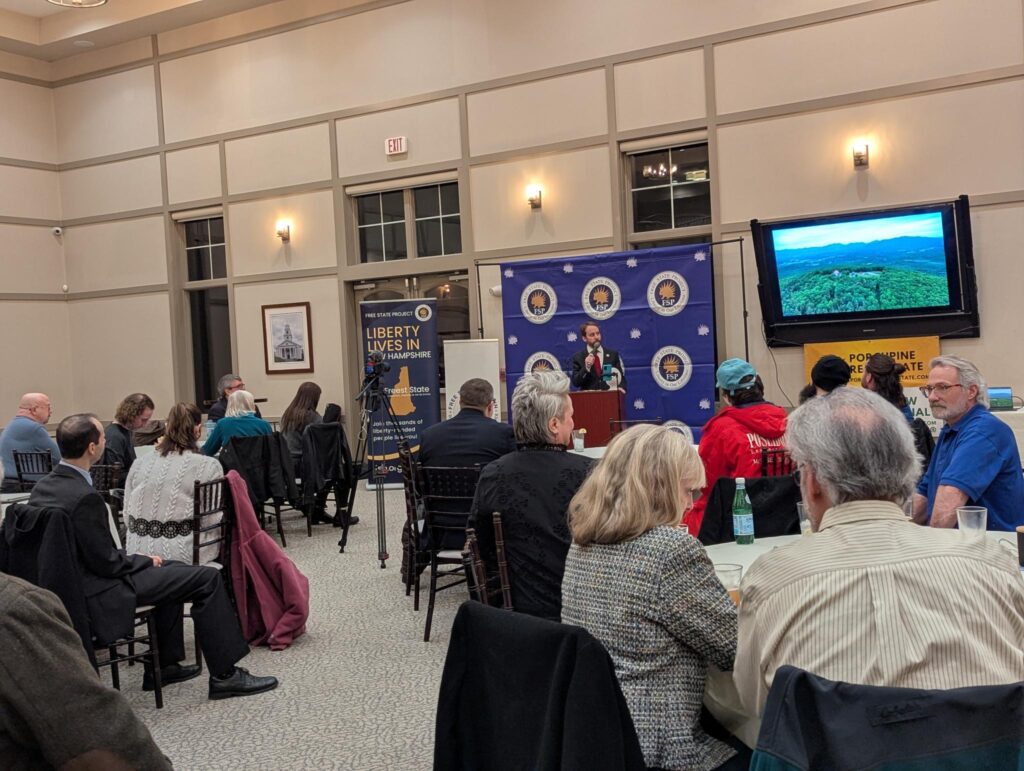
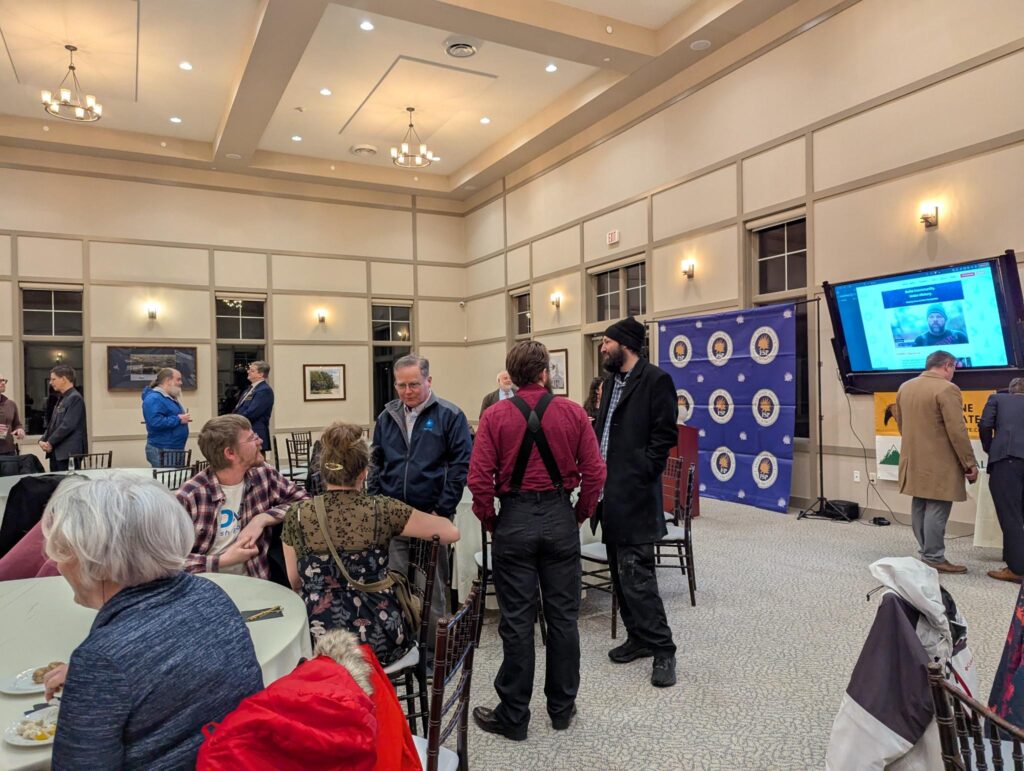
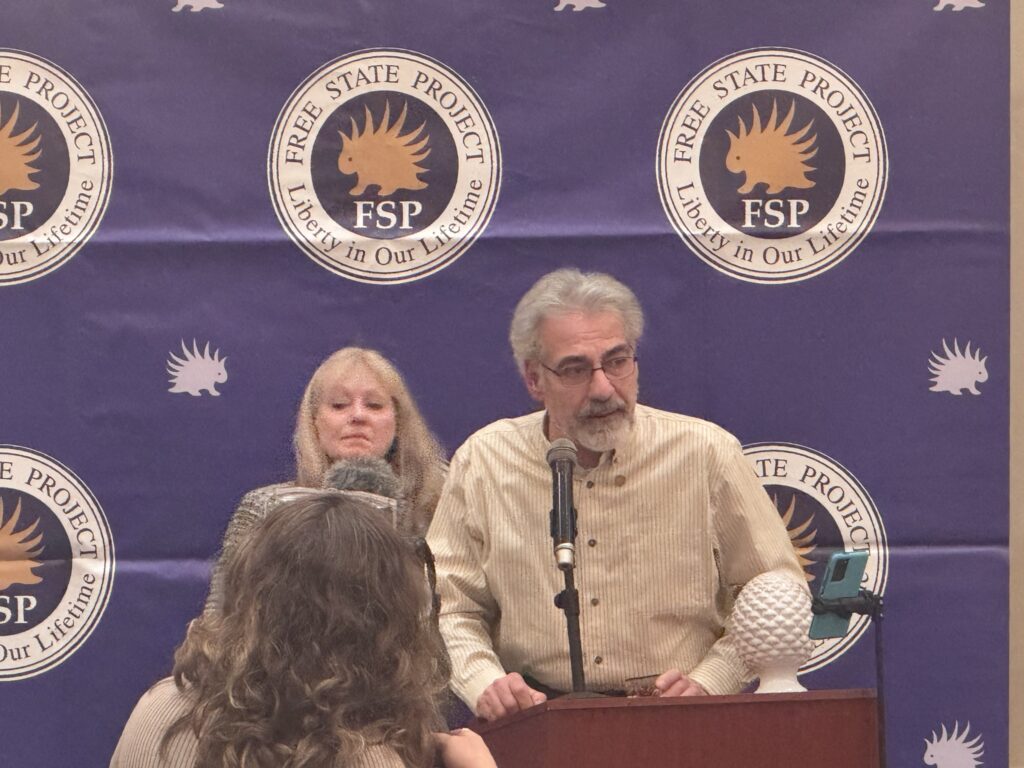
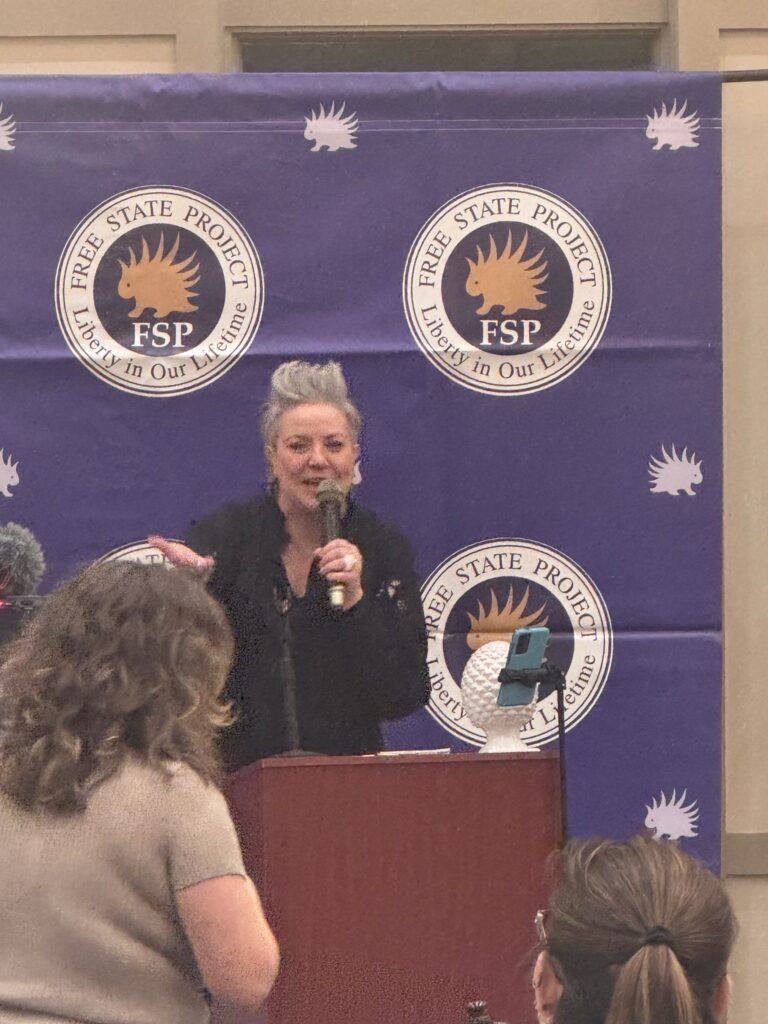
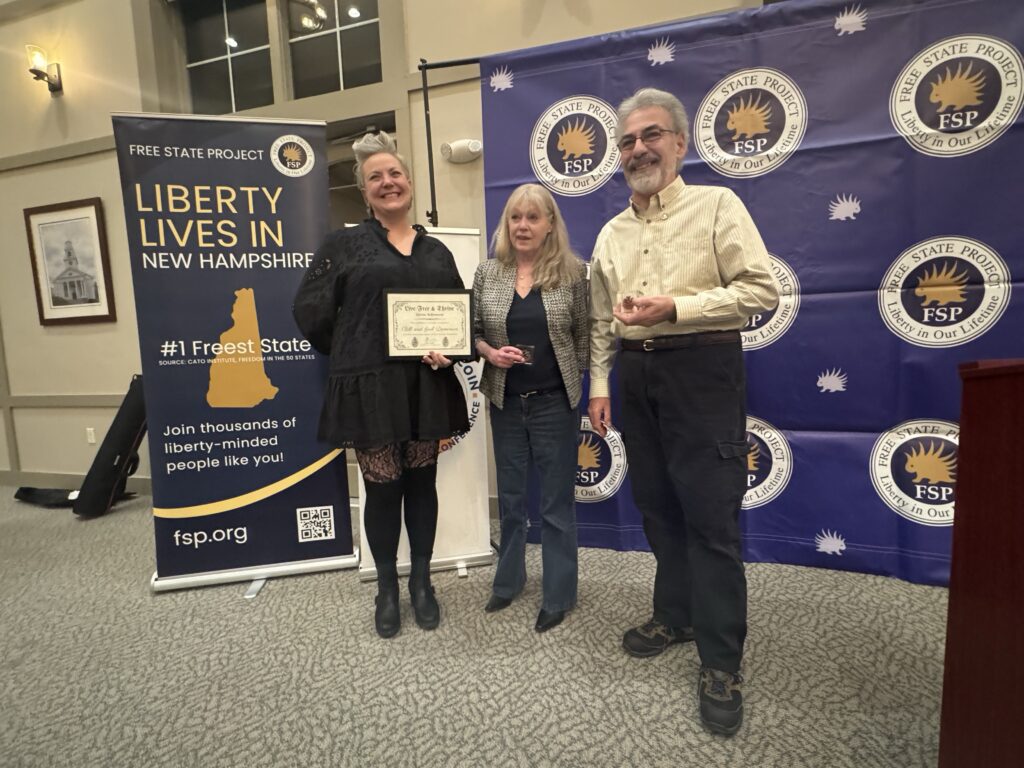
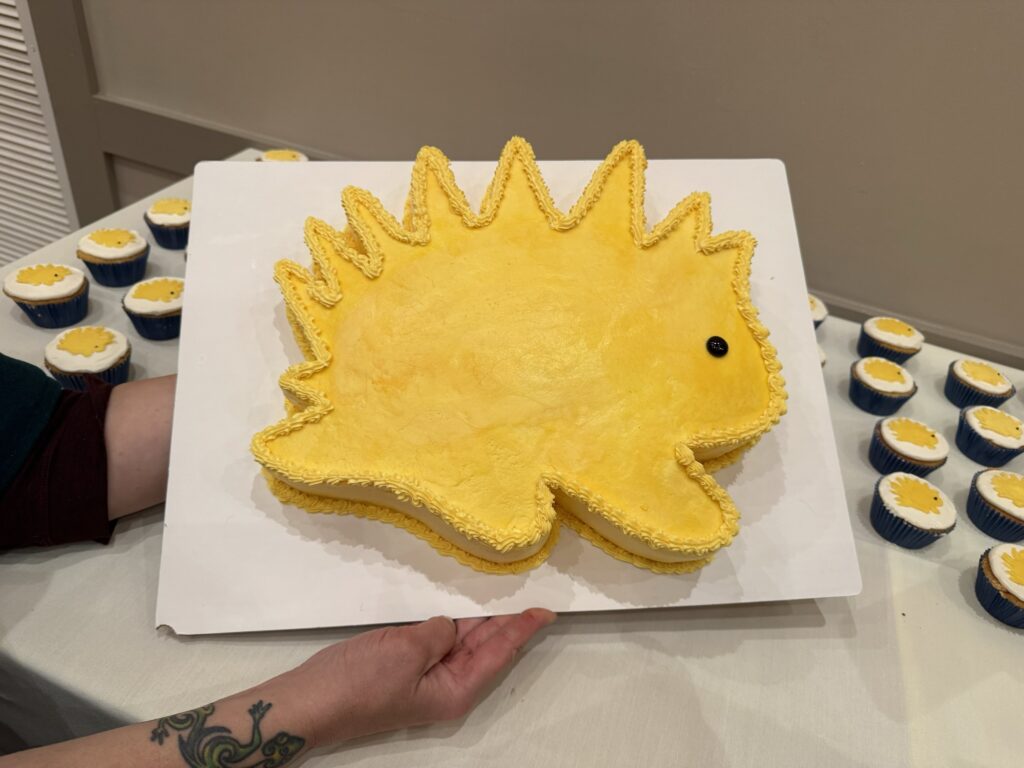
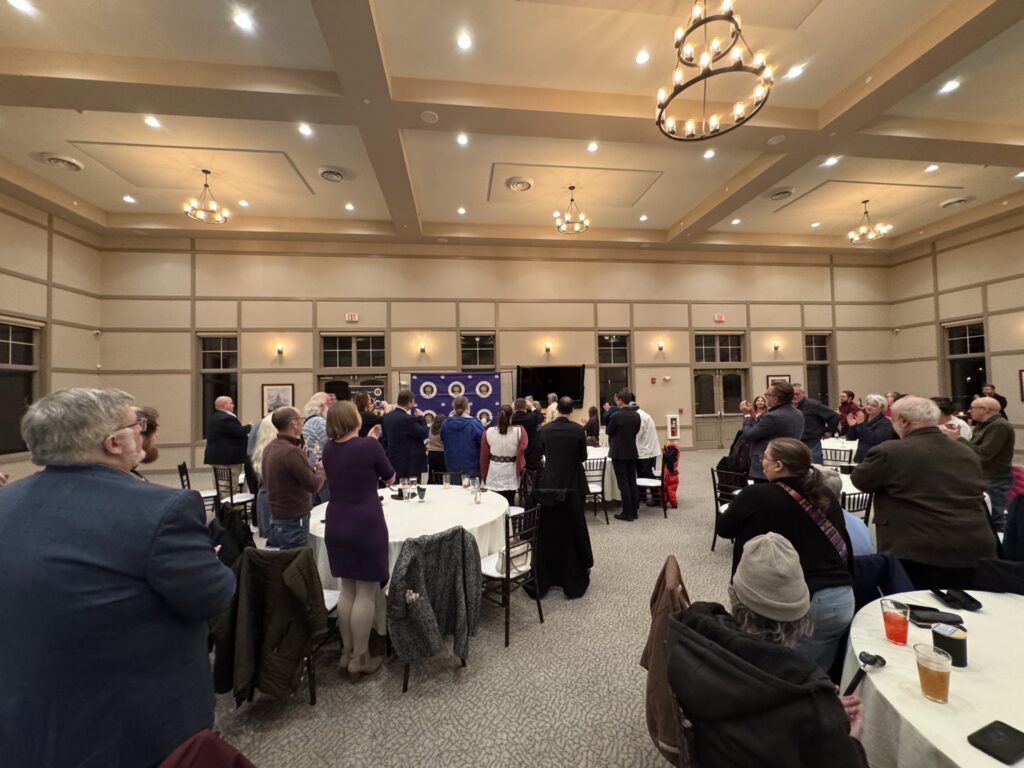
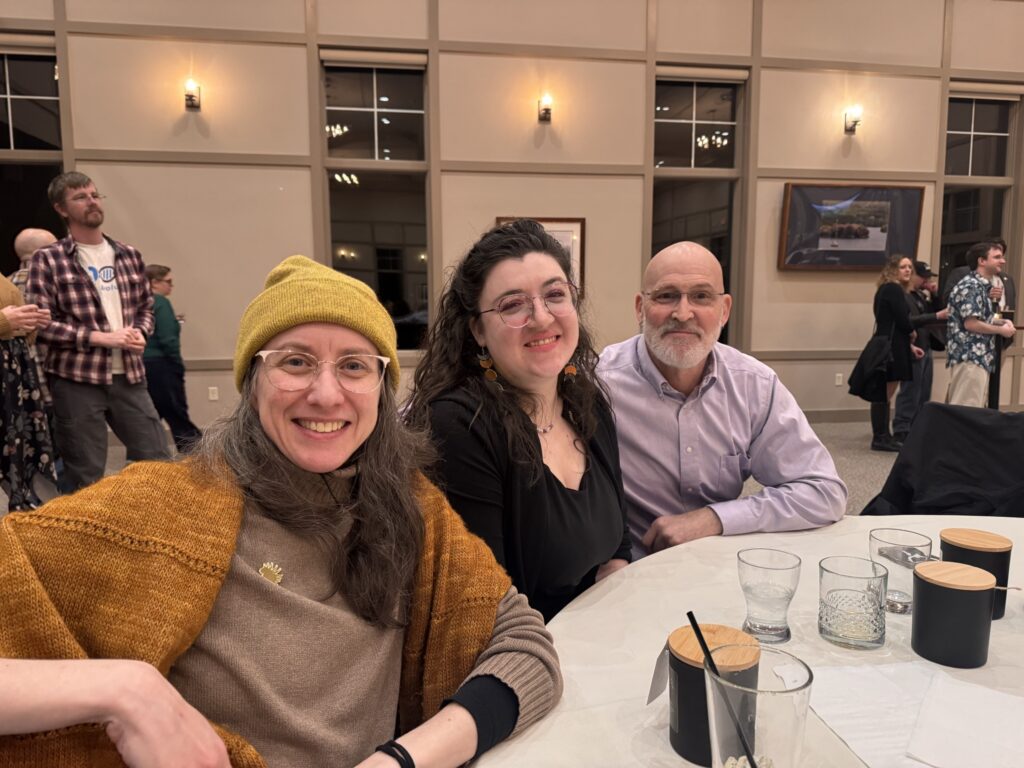
Thank you to our sponsors:
FSB-DAC, the Free State Blockchain Digital Asset Conference… the best little IYKYK crypto conference in the world. Save the date in early October and sign up for the FSP newsletter to keep up to date on developments. Thank you, Bruce and Carol Ann Fenton for your generous support.
To our partner, Porcupine Real Estate, thank you for your unwavering support of the Free State Project since 2009. Thank you for bringing so many Porcupines home to the Free State!
Dan and Carol McGuire, Senator Keith Murphy, andMurphy’s Taproom and Carriage House for providing the space here tonight for us to gather.
